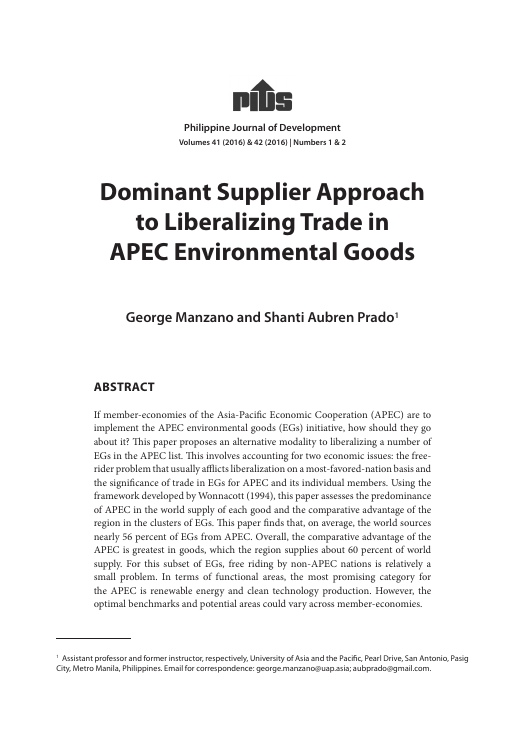Abstract
If member-economies of the Asia-Pacific Economic Cooperation (APEC) are to implement the APEC environmental goods (EGs) initiative, how should they go about it? This paper proposes an alternative modality to liberalizing a number of EGs in the APEC list. This involves accounting for two economic issues: the free-rider problem that usually afflicts liberalization on a most-favored-nation basis and the significance of trade in EGs for APEC and its individual members. Using the framework developed by Wonnacott (1994), this paper assesses the predominance of APEC in the world supply of each good and the comparative advantage of the region in the clusters of EGs. This paper finds that, on average, the world sources nearly 56 percent of EGs from APEC. Overall, the comparative advantage of the APEC is greatest in goods, which the region supplies about 60 percent of world supply. For this subset of EGs, free riding by non-APEC nations is relatively a small problem. In terms of functional areas, the most promising category for the APEC is renewable energy and clean technology production. However, the optimal benchmarks and potential areas could vary across member-economies.
Citations
- Ordinario, Cai. 2017. Time to start talks on ‘E.U. of the East’. BusinessMirror.
Full Issue
SHARE
